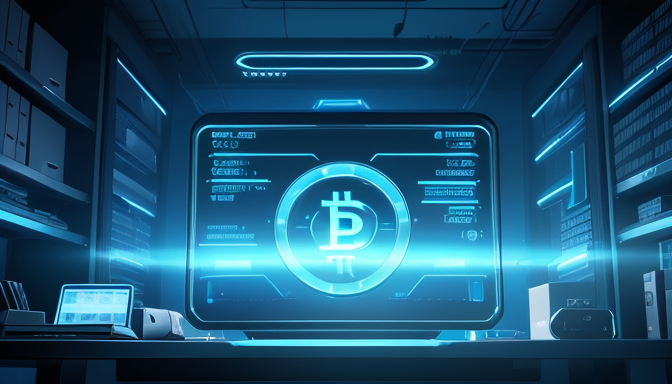In the ever-evolving world of cryptocurrency, security is paramount. You wouldn’t leave your house unlocked, right? Similarly, cold storage serves as a robust fortress for your digital assets. By keeping your cryptocurrencies offline, cold storage drastically reduces the risk of hacking and unauthorized access. Imagine your crypto assets as precious jewels; you wouldn’t want them displayed in a glass case for everyone to see!
Cold storage methods, such as hardware wallets and paper wallets, act like a safe deposit box at a bank. They ensure that your private keys are not exposed to the internet, where cybercriminals lurk. With cold storage, even if your computer is compromised, your assets remain untouched. It’s like having a secret vault that only you can access.
Ultimately, choosing cold storage is about peace of mind. Knowing that your investments are secure allows you to sleep better at night. So, if you’re serious about protecting your crypto assets, consider cold storage as your first line of defense.
Understanding Cold Storage
Cold storage is a term that every crypto enthusiast should know. It refers to the methods of storing cryptocurrencies offline, which drastically reduces the risk of hacking and unauthorized access. Imagine your digital assets locked away in a safe, far from the prying eyes of cybercriminals. This security measure is essential in a world where online threats lurk at every corner.
There are several types of cold storage solutions available, each with its own unique features and benefits. The most common methods include:
- Hardware Wallets: These are physical devices that store your private keys offline, making it nearly impossible for hackers to gain access.
- Paper Wallets: This method involves printing your keys on paper, allowing you to keep them in a secure location, away from digital threats.
Choosing the right cold storage solution is crucial for safeguarding your investments. Whether you prefer the convenience of a hardware wallet or the simplicity of a paper wallet, understanding these options is the first step in protecting your crypto assets.

Benefits of Cold Storage
When it comes to securing your cryptocurrency, cold storage is like having a vault for your digital treasures. Imagine stashing away your valuables in a safe, away from prying eyes and potential thieves. Cold storage provides that layer of protection by keeping your assets offline, drastically reducing the risk of hacking and cyber attacks. With the ever-growing number of online threats, this method offers peace of mind that your investments are safe.
One of the standout benefits of cold storage is its enhanced security. Unlike hot wallets, which are constantly connected to the internet, cold storage solutions are disconnected, making them virtually impenetrable. This means that even if a hacker manages to breach an exchange, your assets remain untouched. Additionally, cold storage allows you to maintain full control over your private keys, eliminating the risk associated with third-party custodians.
Moreover, cold storage can save you from the emotional rollercoaster of market fluctuations. When your crypto is safely tucked away, you’re less likely to panic-sell during a market dip. Instead, you can take a step back, assess the situation, and make informed decisions. It’s like having a safety net that allows you to focus on the long-term growth of your investments.
In summary, cold storage is not just about security; it’s about creating a stress-free environment for managing your digital assets. By choosing this method, you gain the confidence to navigate the crypto world without constantly looking over your shoulder.
Types of Cold Storage Solutions
When it comes to safeguarding your cryptocurrency, understanding the is essential. Cold storage is like a bank vault for your digital assets, keeping them safe from the prying eyes of hackers. There are two primary types of cold storage: hardware wallets and paper wallets. Each has its unique features and benefits that cater to different user needs.
Hardware wallets are physical devices that securely store your private keys offline. Imagine having a USB drive specifically designed for your crypto; it’s portable and incredibly secure. These wallets often come equipped with advanced encryption and PIN protection, making unauthorized access nearly impossible. Popular options include the Ledger Nano S and Trezor, both of which offer robust security features.
On the other hand, paper wallets are a more traditional approach. They involve printing your private and public keys on a piece of paper, effectively taking your cryptocurrency completely offline. While this method is cost-effective and secure from digital threats, it requires careful handling. If you choose to go this route, ensure you store your paper wallet in a safe place, as physical damage or loss can lead to irreversible consequences.
In summary, whether you opt for a hardware or paper wallet, both types of cold storage offer a fortress-like defense for your crypto assets. It’s crucial to assess your personal needs and security preferences before making a choice. By doing so, you can protect your investments against the ever-evolving landscape of cyber threats.
Hardware Wallets
When it comes to securing your cryptocurrency, are like a digital fortress. These physical devices store your private keys offline, making them virtually immune to hacking attempts. Imagine having a safe in your house: you wouldn’t leave the door wide open, right? Similarly, hardware wallets ensure that your keys are kept away from the prying eyes of cybercriminals.
One of the biggest advantages of hardware wallets is their robust security features. Most models come equipped with encryption and require physical confirmation for transactions, meaning even if someone gets hold of your device, they still can’t access your funds without your consent. Popular options like the Ledger Nano S and Trezor have gained a reputation for their reliability and user-friendly interfaces. They make managing your crypto as easy as pie!
However, it’s essential to remember that while hardware wallets provide excellent security, they must be used correctly. Always purchase from reputable sources to avoid counterfeit products and ensure that your device’s firmware is regularly updated. By following these practices, you can enjoy the peace of mind that comes with knowing your crypto assets are well-protected.
Paper Wallets
Paper wallets are a fascinating and secure way to store your cryptocurrency offline. Imagine having your digital assets written down on a piece of paper, free from the clutches of hackers! This method involves generating a pair of cryptographic keys—one public and one private—and printing them out. But don’t just rush into it; creating a paper wallet requires some careful steps to ensure its safety.
To create a paper wallet, you can use trusted online generators. However, it’s crucial to take precautions: always use a secure, offline computer to generate your keys. After printing, make sure to store your paper wallet in a safe place, like a safe deposit box or a fireproof safe. Remember, if someone gets their hands on your paper wallet, they can access your funds!
Here’s a quick overview of the pros and cons of using paper wallets:
- Pros:
- Completely offline, reducing hacking risks.
- Simple to create and use.
- Cons:
- Physical damage or loss can lead to total asset loss.
- Requires careful handling and storage.
In summary, while paper wallets offer an exciting way to safeguard your crypto, they come with their own set of challenges. Treat your paper wallet like a treasure map—keep it safe, and you’ll hold the keys to your digital fortune!
Best Practices for Cold Storage
When it comes to protecting your crypto assets through cold storage, implementing best practices is a game-changer. First off, always ensure your hardware wallets are kept in a secure location. Think of it like hiding your house keys; the more obscure, the better! For paper wallets, consider using a safe or a safety deposit box to prevent physical damage or theft.
Moreover, creating multiple backups is crucial. Imagine losing your keys and having no spare; it’s a nightmare! To avoid this, you can store copies of your paper wallet in different secure locations. Just remember, don’t keep them all in one place. Encryption is another layer of protection; if anyone gets their hands on your backups, they won’t be able to access your assets without the encryption key.
Lastly, always keep your software updated. Just like a good car needs regular maintenance, your wallets need updates to fend off new threats. By following these best practices, you can rest easy knowing your crypto investments are well-guarded.
Risks Associated with Cold Storage
While cold storage is widely regarded as one of the safest methods for securing your cryptocurrency, it does come with its own set of risks. One of the primary concerns is physical damage. Imagine losing your hardware wallet in a flood or accidentally tearing your paper wallet—your assets could be gone forever! To mitigate this, it’s essential to store your cold wallets in a safe, dry place, away from potential hazards.
Another risk involves loss or misplacement. If you forget where you stored your hardware wallet or misplace your paper wallet, accessing your funds can become a nightmare. To prevent this, consider implementing a backup strategy. For instance, you can keep a secure copy of your private keys in a different location. This way, even if you lose one copy, you still have access to your assets.
Lastly, there’s the potential for theft. Although cold storage is offline, if someone gains physical access to your wallet, they can easily steal it. To combat this, consider using security measures such as safes or lockboxes. Remember, even the best cold storage solutions require diligence and careful planning to ensure your crypto assets remain safe.
Physical Security Measures
When it comes to protecting your cold storage, physical security is just as crucial as digital security. Imagine your hardware wallet as a treasure chest; you wouldn’t leave it unlocked in a busy street, right? Similarly, you need to ensure that your crypto assets are shielded from physical threats. Start by storing your hardware wallets in a secure location, like a safe or a locked drawer, where only you have access. Additionally, consider using a fireproof and waterproof safe to guard against environmental disasters.
Moreover, if you’re using paper wallets, treat them like precious documents. Keep them in a safe place, away from moisture and sunlight, which could cause damage over time. To enhance security further, you might want to implement some of these strategies:
- Regularly check the physical condition of your wallets to ensure they remain intact.
- Limit access to trusted individuals only, especially if you have a shared living situation.
- Use tamper-evident seals on your storage solutions to detect unauthorized access.
By taking these steps, you can significantly reduce the risk of losing your crypto assets due to physical threats. Remember, the goal is to make it as difficult as possible for anyone to access your treasures without your permission!
Backup Strategies
When it comes to securing your crypto assets, are your safety net. Imagine this: you’ve invested in a treasure chest full of digital gold, but what happens if that chest gets lost or damaged? That’s where backups come into play. It’s not just about having a fallback; it’s about ensuring you can always reclaim your assets, no matter what.
One effective method is to create multiple copies of your private keys and store them in different locations. Think of it like hiding spare keys to your house; you wouldn’t keep them all in one spot, right? You can use both hardware wallets and paper wallets for this purpose. Just remember, the more copies you make, the more careful you need to be about where you put them. Here are a few tips:
- Store one copy in a safe at home.
- Keep another in a bank safety deposit box.
- Consider giving a trusted friend or family member a copy.
Additionally, always ensure that your backups are encrypted. This adds an extra layer of protection, making it significantly harder for anyone to access your assets without your permission. With the right backup strategies in place, you can sleep easy knowing your crypto treasures are safe and sound.
Frequently Asked Questions
- What is cold storage for cryptocurrencies?Cold storage refers to keeping your crypto assets offline, away from potential online threats. This method significantly minimizes the risk of hacking and theft, ensuring your digital coins are secured.
- How do hardware wallets work?Hardware wallets are physical devices that securely store your private keys offline. They generate and store keys in a secure chip, making it nearly impossible for hackers to access your funds remotely.
- Are paper wallets safe?Yes, paper wallets can be safe if created and stored correctly. They involve printing your keys on paper, but you must ensure the paper is protected from physical damage and loss.
- What are the risks of using cold storage?While cold storage is secure, risks include physical damage or loss of the storage medium. It’s crucial to implement backup strategies and physical security measures to mitigate these risks.

